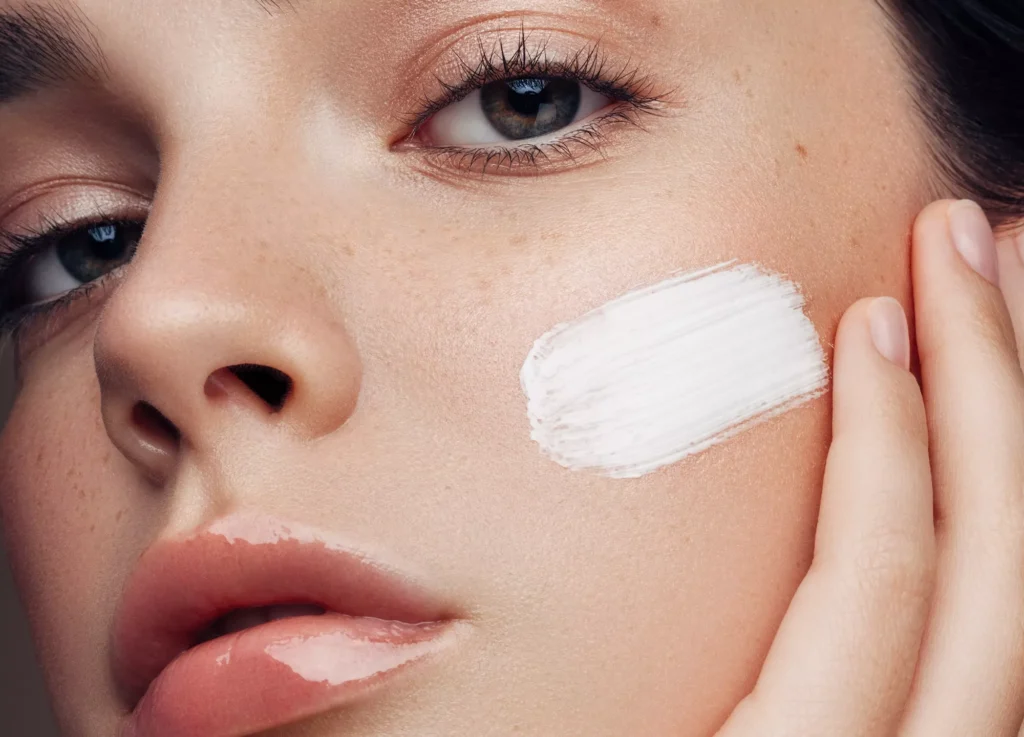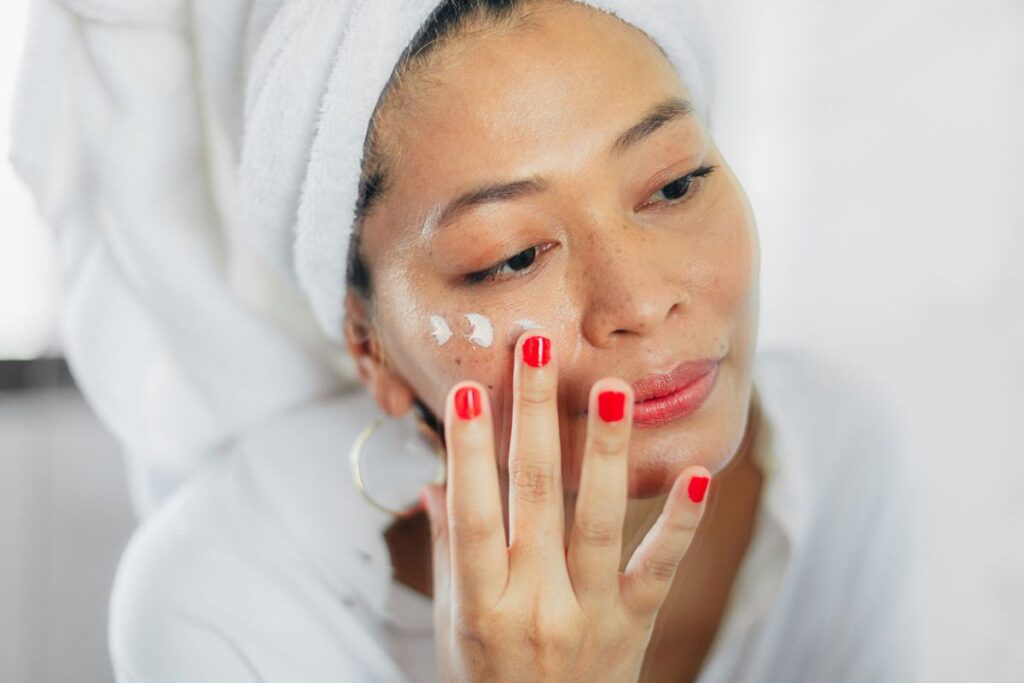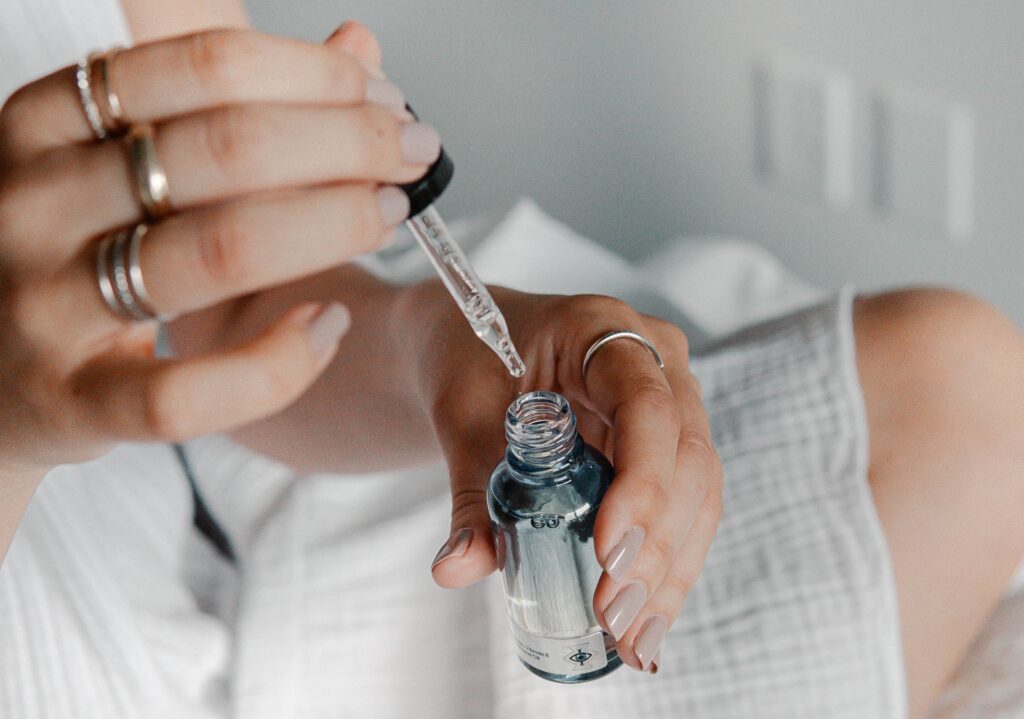
Hyaluronic acid and vitamin C are both components of skincare that are regarded as elixirs for your skin. Retinol is another such component. Retinol, a vitamin A derivative, is well known for treating acne, wrinkles, and uneven skin tone. However, not everyone benefits from retinol treatments in the same way. It’s important to choose the proper product for your skin type.
Table of Contents
Retinol: what is it?

Source: cnn.com
One form of retinoid that is sold over-the-counter is retinol. You may be familiar with retinoids, which are chemical compounds made from vitamin A and are used in anti-aging skin care products. By stimulating cell turnover, retinol creams may help your skin produce more collagen and elastin, smooth out pores, and produce less sebum or oil. They can also make your skin seem younger. For certain people, the substance might be drying and unpleasant.
PotentLift Advanced Encapsulated 0.5% Retinol Cream
A skincare product called PotentLift Advanced Encapsulated 0.5% Retinol Cream provides a potent mix of retinol and vitamin C for the best possible skin effects. This cream is intended to treat a variety of issues, including dullness, fine lines, wrinkles, and uneven skin tone. The non-irritating nature of PotentLift’s retinol cream is one of its primary advantages. Retinol may sometimes cause sensitivity or discomfort in certain people, however this product’s cutting-edge encapsulating technique helps to reduce these negative effects.
This implies that even those with sensitive skin may use this cream without experiencing any negative side effects. The composition for PotentLift contains retinol and vitamin C, which together have a synergistic impact on the skin. Together, these components act to enhance overall skin brightness, increase elasticity, lessen hyperpigmentation, and increase collagen formation.

Source: saffronfoodimports.com.au
Your skin will remain moisturized all day long thanks to PotentLift’s combination of these ingredients with hyaluronic acid and other nourishing components. The end effect is skin that is soft, plump, and clearly luminous. PotentLift’s unique encapsulating technique sets it different from other retinol creams available on the market. This enables regulated release over time, allowing your skin to continue receiving the benefits of retinol for up to 12 hours after application. This slow-release approach offers continuous effectiveness without overpowering or irritating the skin, as opposed to experiencing an abrupt increase in activity followed by declining effects, as per potentlift reviews.
The cost-effectiveness of PotentLift Advanced Encapsulated 0.5% Retinol Cream in comparison to other products on the market is another outstanding feature. Due to their strong compositions, high-quality skincare products sometimes have expensive price tags; nevertheless, PotentLift is able to provide an efficient solution without going overboard. It is advised to use this cream in the evening after cleaning and toning your skin in order to get the best results. Use a tiny quantity at first, then work your way up as tolerated. During the day, it’s crucial to use sunscreen since retinol might make you more sensitive to the sun.
In summary, PotentLift Advanced Encapsulated 0.5% Retinol Cream offers a superb retinol and vitamin C combination in a non-irritating formulation. With its capacity to retain moisture, this cream leaves your skin looking remarkably radiant, plump, and silky. You will continue to benefit from retinol for up to 12 hours after application thanks to the slow-release technology. In addition, it is a desirable alternative in comparison to other options on the market due to its price. Use the retinol cream from PotentLift as part of your skincare regimen to get excellent results without sacrificing quality or spending too much money.
Is it possible to use retinol cream nightly?

Source: realself.com
applying it on alternate nights three to four times each week. If you are not feeling any dryness or redness after a few weeks of using this cadence, think about adding an extra night. Retinol may be used every night if you can handle it and it doesn’t dry or irritate your skin excessively. Despite its advantages, you should first speak to your dermatologist if you suffer from eczema, rosacea, or other skin diseases.
Because there is evidence that the use of oral retinol therapies (like Accutane) might cause birth problems, individuals who expect to get pregnant within the next few months, as well as those who are already pregnant or nursing, should exercise extreme care and abstain from using a topical retinol cream.
What items should I stay away from if I use retinol creams?
Any face wash that contains exfoliating acids, such as glycolic and salicylic acid, as well as face scrubs, should be avoided since they will only exacerbate some of the undesirable side effects, such as flaking and redness.
Ingredients that Work Well with Retinol

Source: byrdie.com
You may combine the substances listed below with your retinol in the same regimen. Keep in mind your individual skin type and objectives while using these combinations since everyone has different skin sensitivity. There are additional combinations that will work if one doesn’t for you.
Niacinamide
One of the well-liked components that complements all other skincare actives, including retinol, is niacinamide (also known as vitamin B3). Niacinamide is a fantastic component to use with retinol if your skincare objectives include curing acne and anti-aging. Niacinamide may also aid in enhancing skin barrier performance, hence lowering the risk of irritation brought on by retinol usage.
C vitamin
Contrary to common opinion, it is possible to combine vitamin C with retinol. In fact, these two potent ingredients are used together in many skincare products. Since vitamin C is one of the most powerful antioxidants, it may increase retinol’s defenses against UV rays and environmental stresses. For individuals looking to combat hyperpigmentation and early aging, this is an excellent match. Having said that, certain skin types may find the combination to be overly drying or sensitizing. If you fit this description but still want the best of both worlds, keep to using your retinol at night and utilizing vitamin C in the morning.
Hyaluronic Acid

Source: dermstore.com
A humectant, hyaluronic acid (HA), draws water into the skin from the environment to promote skin moisture. To lessen dryness, flaking, redness, and irritation, HA may be used in the same manner as retinol, along with additional hydrators like glycerin.
Salicylic Acid
If you’re looking to cure breakouts, salicylic acid and retinol make an excellent combination since they are both anti-acne. Salicylic acid and retinol may work well together, but it is generally not advisable to use them together since the combination might be too drying for most skin types. It is completely OK to use a wash-off salicylic acid (BHA) cleanser in addition to your retinol.
Azelaic Acid
Azelaic acid, a naturally occurring acid, is beneficial for treating acne, hyperpigmentation, and rosacea. You may take retinol and azelaic acid simultaneously, but reduce your dosage if you experience any dryness.
Peptides and Ceramides
Peptides and ceramides, substances that strengthen the skin barrier, may be utilized risk-free in the same regimen as retinol. You may be able to endure the drying and irritating side effects of retinol easier since these components aid with the moisture content of the skin.







